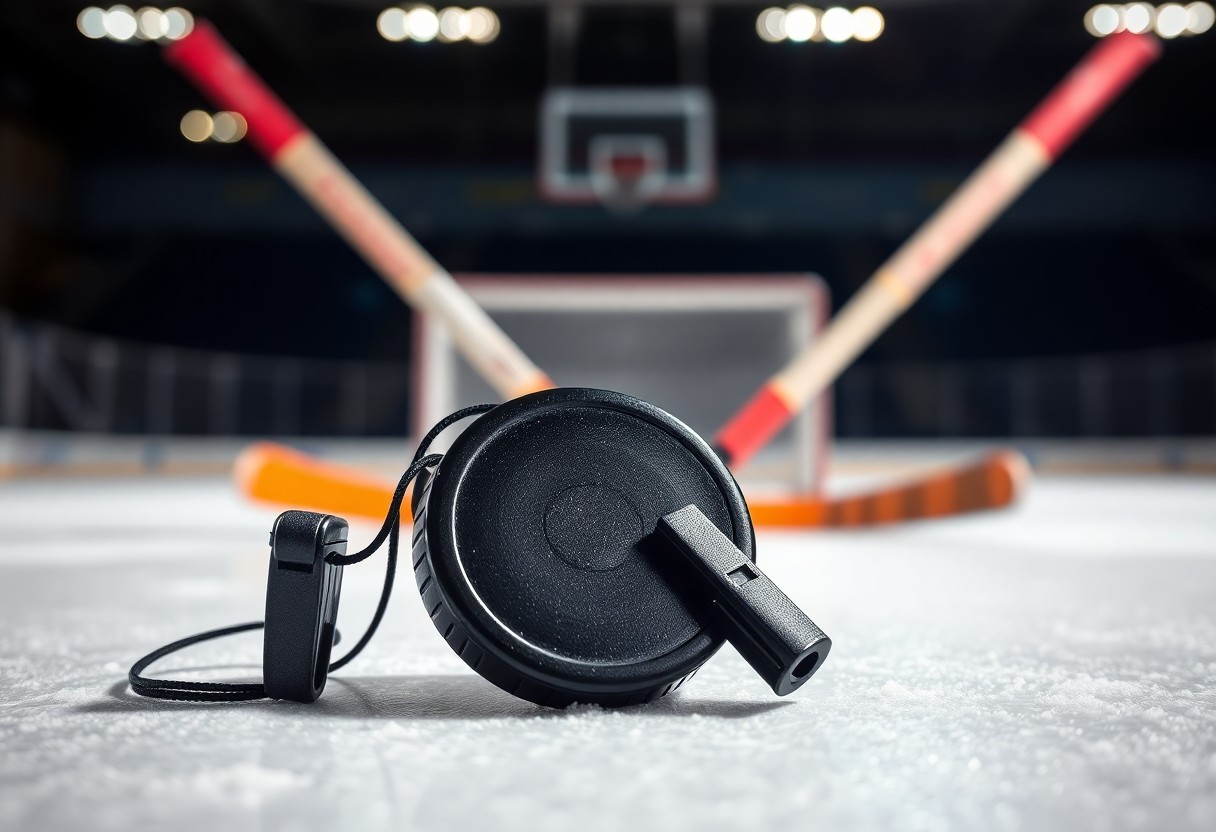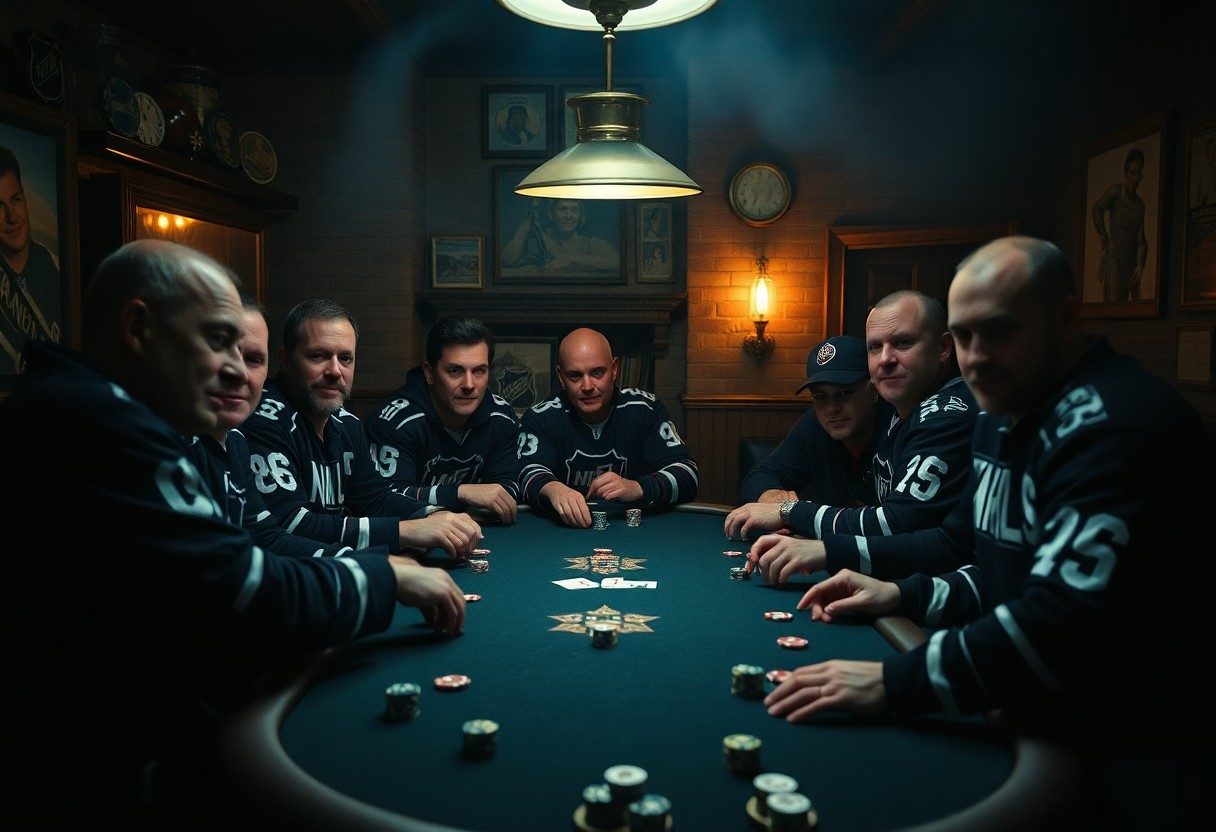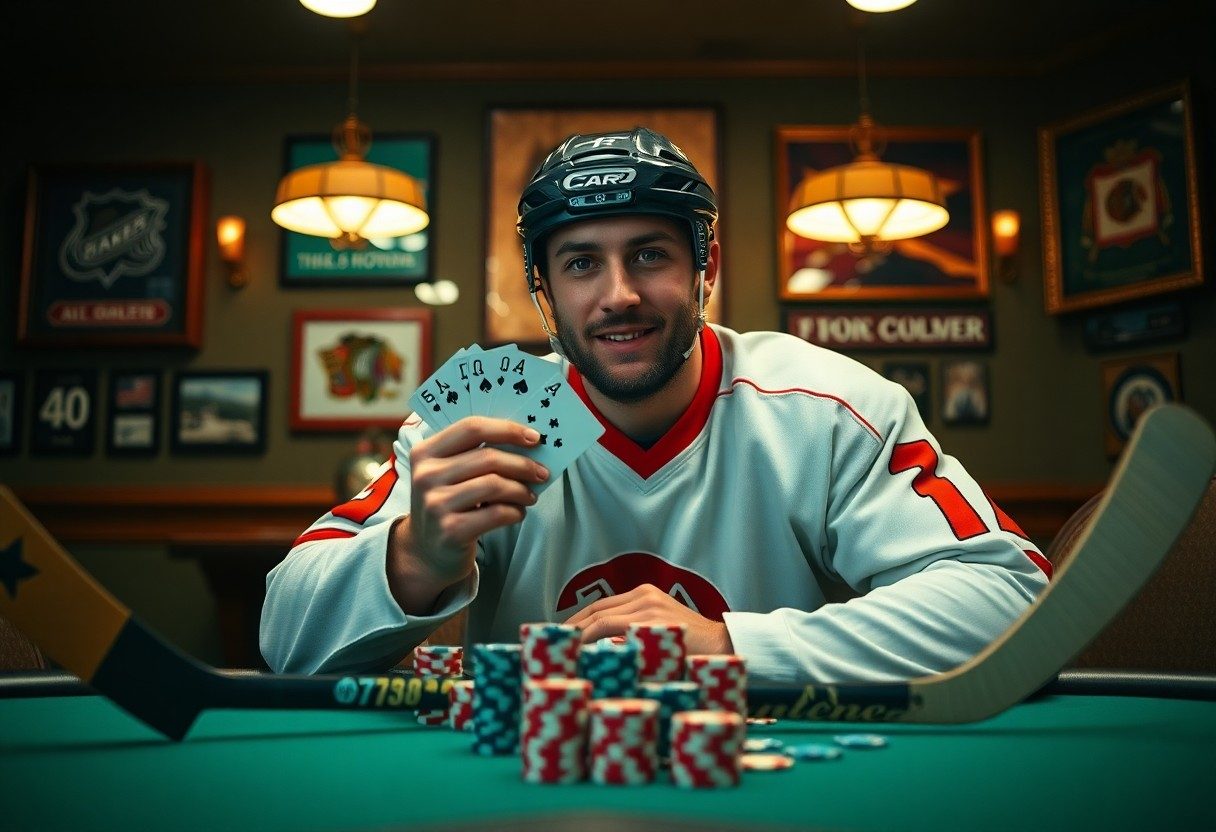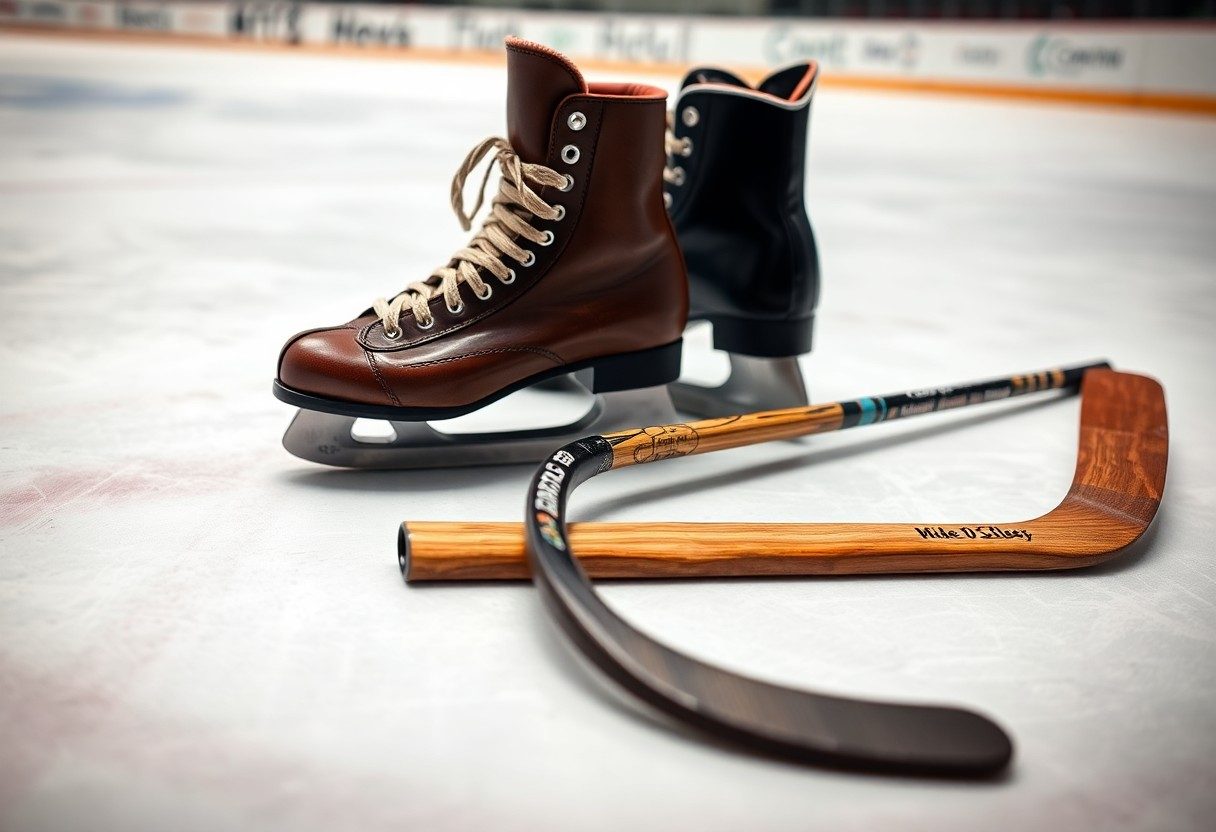Over the years, you may have noticed that top hockey players and elite poker professionals share more than just a competitive spirit; they possess a unique set of skills and mindsets that drive their success. In this guide, you will explore the fascinating parallels between these two fields, uncovering the mental toughness, strategic thinking, and risk management practices that define their excellence. Whether you’re a sports fan, a poker enthusiast, or someone simply looking to improve your own game, these insights will deepen your understanding of what it takes to succeed in high-stakes environments.

Types of Skills Shared
For both hockey players and poker pros, skill development is a vital part of achieving success. The types of skills shared between these two disciplines can be dissected into several key areas:
| Mental Toughness | Ability to perform under pressure |
| Strategic Thinking | Planning moves ahead |
| Adaptability | Adjusting to opponents’ tactics |
| Risk Assessment | Weighing potential outcomes |
| Teamwork | Collaboration for success |
This intersection of skills sets a strong foundation for both hockey and poker, enhancing your performance and decision-making abilities.
Mental Toughness
Any successful athlete or player has honed their mental resilience through rigorous training and experience. The ability to remain focused and composed during high-pressure situations can significantly impact your performance. You will find that both hockey and poker demand an unwavering resolve to push through challenges and setbacks. This mental fortitude not only enhances your individual skill set but also instills a competitive edge, allowing you to thrive when others falter.
Strategic Thinking
Shared among both domains, strategic thinking is the art of planning your moves with foresight. You need to anticipate your opponent’s actions and counter them effectively. In hockey, every play requires quick decisions based on tactics, while in poker, the ability to read opponents can lead to victory.
Toughness in strategic thinking comes from your ability to adapt your game plan on the fly. In both hockey and poker, you learn to analyze real-time situations and make adjustments to leverage your strengths. You will often weigh risks and opportunities, balancing aggression with caution to maximize your success. This adaptability not only heightens your game but also prepares you for unforeseen challenges, compelling you to remain one step ahead of your competition.
Tips for Developing Skills
You can enhance your performance by focusing on specific skills that overlap in hockey and poker. Consider these tips for skill development:
- Practice consistently to build muscle memory.
- Analyze your gameplay or performance recordings.
- Seek mentorship from experienced players or pros.
- Set measurable goals for continuous improvement.
Knowing your strengths and weaknesses will allow you to target your training effectively.
Training Regimens
The best athletes and players follow structured training regimens that enhance their abilities. In hockey, this may include on-ice drills, strength training, and conditioning. Similarly, poker professionals often engage in study sessions, hand analysis, and mental focus exercises. By committing to a training plan that addresses both physical and mental aspects, you can improve your overall game.
Mindset Practices
Now, let’s discuss the importance of mindset in both hockey and poker. High-level performance demands mental resilience, focus, and adaptability. Developing a strong mindset can help you manage pressure and make better decisions on the fly.
For instance, visualizing successful plays or outcomes can significantly enhance your confidence and calmness during games or tournaments. Techniques like mindfulness and meditation can also help maintain focus, particularly when faced with challenging situations. By prioritizing mindset practices alongside your physical training, you’ll position yourself for success in both arenas.
Step-by-Step Guide to Mastery
Not every player starts at the top; mastery comes with intentionality and structure. To truly elevate your game whether on the ice or at the poker table, consider the following steps:
| Step | Description |
| 1. Assess Your Skills | Identify your strengths and areas for improvement. |
| 2. Set Specific Goals | Create clear, measurable objectives. |
| 3. Develop a Practice Routine | Establish a schedule that incorporates drills and strategies. |
| 4. Monitor Progress | Regularly evaluate your performance against your goals. |
Setting Goals
Some of the most successful athletes define what they aim to achieve clearly. By setting specific, measurable, attainable, relevant, and time-bound (SMART) goals, you create a roadmap for your progress. This clarity can motivate your daily practice and keep you focused during intense competitions.
Continuous Learning
Even the best players understand that learning shouldn’t stop. Whether it’s analyzing game footage, studying opponents, or taking courses, an ongoing commitment to learning ensures you remain adaptable and innovative in your strategy.
It’s important to embrace various learning methods to enrich your understanding of the game. Engaging with peers, listening to expert commentary, and participating in workshops can expose you to new techniques and approaches. This dedication to knowledge enhances your skills and keeps you a step ahead of the competition, aiding your journey towards mastery.
Key Factors for Success
Despite the seeming differences between hockey players and poker pros, their success relies on several key factors:
- Dedication to training
- Strong mental resilience
- Strategic thinking
- Effective teamwork and communication
After understanding these core elements, you can appreciate how both disciplines require similar skills and mindsets to excel.
Consistency
Factors contributing to success include maintaining a high level of performance over time. For both hockey players and poker pros, consistency in practice, strategy, and execution is key to achieving long-term results. By committing to regular training sessions and refining your skills, you foster growth and improve your overall game.
Adaptability
Factors that enhance your ability to succeed also include being adaptable. Whether you’re facing a tough opponent on the ice or a challenging hand at the poker table, the ability to adjust your strategies and approach is imperative. This flexibility allows you to respond to shifting circumstances and stay one step ahead.
Plus, adapting to the dynamic nature of both hockey and poker can significantly boost your performance. In fast-paced games, you must read opponents, anticipate their moves, and adjust your techniques accordingly. The same applies to poker, where understanding your opponents’ tendencies and modifying your tactics can lead to better outcomes. Embracing change ensures that you remain competitive and continue to evolve in your chosen field.
Pros and Cons of Pursuing Both Careers
Many individuals strive to excel in both hockey and poker, but it’s necessary to weigh the advantages and disadvantages. Below is a breakdown of the pros and cons of pursuing both careers:
| Pros | Cons |
| Improved mental toughness | Possible burnout from high demands |
| Enhanced strategic thinking | Time management challenges |
| Shared community and networking | Financial instability risks |
| Physical fitness and health benefits | Limited time for personal life |
| Diverse skill set development | Pressure to perform in both fields |
Rewards and Challenges
You will find both excitement and obstacles in juggling the demands of hockey and poker. The rewards include an expanded skill set and the thrill of competition, while challenges like time management and pressure can become daunting. Finding a method to navigate between the two fields can significantly bolster your overall performance.
Balance Between Two Disciplines
For those engaged in both hockey and poker, achieving balance is key to thriving in both pursuits. It requires you to establish a structured schedule that allows for adequate practice and study time while also ensuring you take care of your physical and mental well-being.
For instance, setting specific training hours for hockey and dedicated time for poker strategy can help you remain focused and effective. Allocating designated rest periods and setting priorities can also prevent burnout. Keeping a journal to track your progress in both disciplines will allow you to visualize improvements and adjust your approach when necessary. Integrating other activities for relaxation can also ensure that you maintain balance and enjoyment in both aspects of your life.
The Role of Teamwork and Community
Once again, the importance of teamwork and community stands out in both hockey and poker. In these fields, working collectively towards a common goal fosters an environment where individuals can thrive. Whether it’s synchronizing plays on the ice or reading opponents at the table, the collective efforts of teammates support both personal and group success. This synergy not only enhances performance but also builds lasting relationships that extend beyond the game.
Building Connections
Community forms the backbone of both hockey and poker, allowing you to forge vital connections. In hockey, players rely on their teammates for support on and off the rink, while poker players benefit from sharing strategies and experiences. These interactions create networks that enrich your skills and understanding of the game, enhancing your overall performance and enjoyment.
Support Systems
While you may excel individually, having a solid support system is fundamental to success in both hockey and poker. Surrounding yourself with mentors, teammates, and friends who understand the nuances of your chosen sport can help you navigate challenges and celebrate successes. This network becomes a source of encouragement, providing guidance when you face tough decisions or setbacks.
Role models and mentors in your support system can offer insights derived from their own experiences, helping you refine your strategies and approach to the game. Their guidance can help you develop better decision-making skills in high-pressure situations, whether when making a split-second choice on the ice or analyzing a poker hand. Ultimately, your community can motivate you to push your limits, ensuring that you continually grow in your craft.
To wrap up
The similarities between hockey players and poker pros illustrate the importance of discipline, strategy, and mental fortitude in both fields. As you navigate your own pursuits, consider how the resilience and adaptability seen in these athletescan enhance your own skills. By embracing the focus and strategic thinking inherent in both hockey and poker, you can elevate your game, whether on the ice or at the table. Recognizing these connections may provide insights that propel you toward your own successes.













